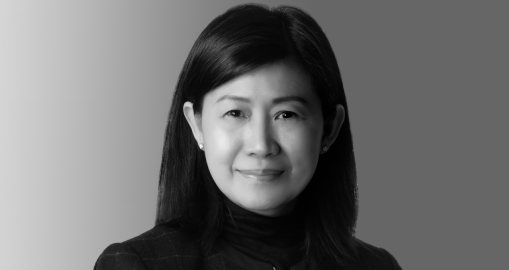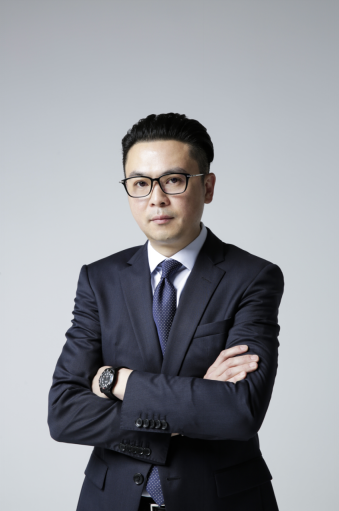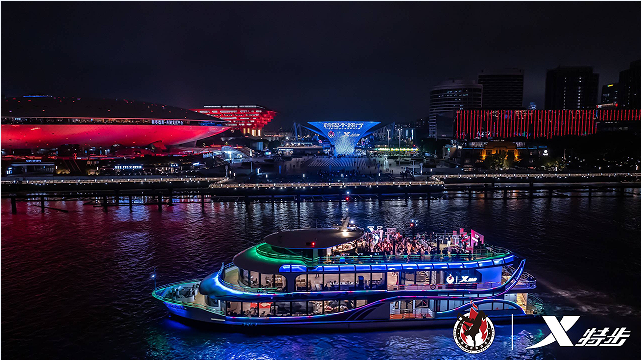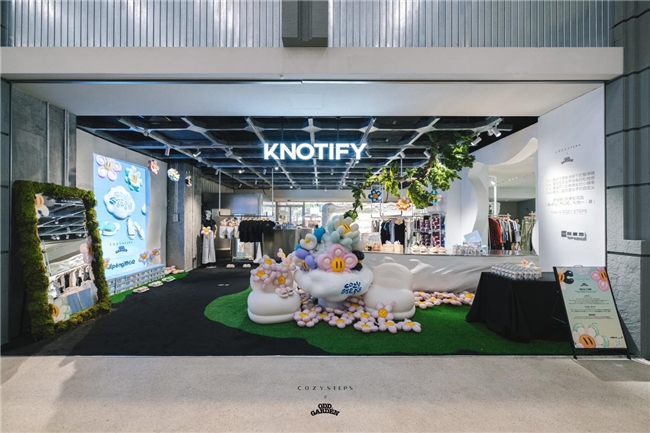Mazars Releases Chinese Luxury Brand Consumers
A Generational, Gender and City-tier Analysis
2020年5月28日,中国上海 – “在中国地区每月购买奢侈品的重度奢侈品消费人群中,以Z世代人群(即95后)居首,其年购奢侈品可达12件以上!”这一极具洞察的结论来自今日发布的《中国奢侈品消费者调研报告——代际、性别和城市分析》。在调研报告发布的当日,全球领先的审计和咨询机构Mazars中审众环,中国大陆地区执行合伙人刘钰涓(Julie Laulusa)博士邀请了多名奢侈品领域大腕——伯爵中国执行董事戴慕修(Mathieu Delmas)先生,欧莱雅中国首席消费官卫吉峰(Stephane Wilmet)先生和老佛爷百货中国首席运营官沈智傑(Lawrance Shum)先生,以一场云端论坛对这份跨四代中国消费者奢侈品消费观的深度报告进行分享与探讨。

May 28th, 2020, Shanghai, China - "In China, Gen Z (i.e. post-95s) ranks first among the heavy luxury consumers who buy luxury goods every month, with more than 12 luxury items purchased each year!" This insightful conclusion comes from the Chinese Luxury Brand Consumers — A Generational, Gender and City-tier Analysis published today. On the day of the research report's release, Dr. Julie Laulusa, Managing Partner of Mazars China, the world's leading audit and advisory firm, invited a number of luxury industry heavyweights, including Mathieu Delmas, Managing Director of Piaget China, Stephane Wilmet, Chief Consumer Officer of L’Oréal China and Lawrance Shum, Chief Operating Officer of Galeries Lafayette China. Together, via a webinar, they share and explore the profound and thorough report which has researched on the luxury consumption views of four generations of Chinese consumers.
尽管中国消费者接触奢侈品只有短短的40年,但已缔造了全球排名第二的奢侈品市场。为了深入了解四代不同年龄段消费者的奢侈品消费行为与年龄、价值观、生活方式和社会背景等因素之间的关系,Mazars中审众环于2019年底发起了该项调研,内容涉及消费者对奢侈品的定义、了解资讯的途径、经常购买的品类、购买频率及渠道、影响购买决策的因素等。最终,调研团队共计完成有效问卷3235份,覆盖Z世代(24岁以下)、千禧一代(25-38岁)、X世代(39-54岁)以及婴儿潮(55-73岁)四个年龄段,为期待深入了解中国消费者奢侈品消费心理与习惯的商家提供了一份深度与广度兼具的“全代消费者侧写式”调研报告。
Although the majority of Chinese consumers have only been exposed to luxury goods for 40 years, China has grown to be the world’s second-largest luxury market. In order to gain an insight into the relationship between luxury consumption behaviors and their ages, values, lifestyles and social backgrounds of consumers of different ages in four generations, Mazars launched the survey at the end of 2019, exploring Chinese consumers’ definition of luxury goods, ways to obtain brand information, categories of products frequently purchased, frequency and channels of purchase, factors influencing purchasing decisions etc.. The team collected a total of 3,235 valid questionnaires covering Gen Z (under 24), Millennials (25-38), Gen X (39-54) and Baby Boomers (55-73). For businesses looking to have an in-depth knowledge of the psychology needs and habits of Chinese luxury consumers, Mazars provides a profound and thorough research report featuring the "profile of all generations of consumers".
对此,刘钰涓(Julie Laulusa)博士表示:“经过多年在中国奢侈品行业的业务经验和深入研究,我们发现不同代际的奢侈品消费者的消费习惯和消费观差异十分明显。在90后95后逐步成为中国市场消费主力的大背景下,我们希望这样一份覆盖全年龄段的调研报告能为奢侈品行业从业者提供一些启示。”

Mazars中审众环中国大陆地区执行合伙人 刘钰涓(Julie Laulusa)博士
In response, Dr. Julie Laulusa remarked that: "After years of business experience and in-depth study in China's luxury industry, we find that the difference of consumption habits and consumption views among four generations of luxury consumers is significant. Under the backdrop of post-90s and post-95s gradually becoming the main force of consumption in the Chinese market, we hope that such a research report covering all ages can contribute some insights for the luxury industry practitioners.”
对于95后在奢侈品消费上的无限潜力,老佛爷百货中国首席运营官沈智傑(Lawrance Shum)先生也发表了类似的观点: “95后正在逐渐成长为未来奢侈品消费市场中一股不可忽视的潜在消费群体。这对我们来说是非常重要的启示。所以,虽然80后和90后目前仍是老佛爷的消费主力,但我们也在门店业态上积极创新,为的就是能够通过业态丰富且形式活泼来捕获年轻消费者的青睐。”

老佛爷百货中国首席运营官 沈智傑(Lawrance Shum)先生
Mr. Lawrance Shum, Chief Operating Officer of Galeries Lafayette China, made a similar point about the unlimited potential of post-95s in luxury consumption: “Post-95s are growing into a potential force of consumption that cannot be overlooked in the future luxury market. This is a very important inspiration for us. Therefore, although post-80s and post-90s are still the main consumers targeted by Galeries Lafayette, we also actively innovate in our store activities so as to win the favor of young consumers through rich activities and vivid forms.”
除了更强的消费意愿和购买实力外,作为公认的数字原住民,95后自然也更愿意通过数字渠道了解奢侈品的信息并为数字营销买单,而这一点也在Mazars中审众环的调查报告中得到了印证。调查显示,越来越多的消费者将手机端作为获取资讯和购买商品的主要渠道,其用户使用率以Z世代为首,高出千禧一代近10个百分点。
In addition to greater willingness to spend and stronger buying power, post-95s are recognized as the digital natives. They are naturally more willing to use digital channels to obtain luxury information and pay for digital marketing. And this was proved in Mazars' report. As shown in the survey, more and more consumers are using mobile phones as the main channel for accessing information and buying goods, with a utilization rate led by Gen Z, nearly 10 percentage points higher than that of Millennials.
伯爵中国执行董事戴慕修(Mathieu Delmas)先生认为:“消费者的奢侈品消费习惯也在不断演化。拿伯爵来说,我们今年正式入驻天猫,也正是为了更好地符合Z世代人群的消费习惯。因为根据我们的观察,身为数字原住民,Z世代更愿意在家轻松完成网购。”

伯爵中国执行董事 戴慕修(Mathieu Delmas)先生
Mr. Mathieu Delmas, Managing Director of Piaget China, believes that: “The luxury consumption concept of Chinese consumers is also maturing and evolving. Take Piaget for instance, we officially entered Tmall this year to better cater for the consumption habits of Gen Z. According to our observations, as the digital natives, Gen Z is more willing to make online shopping comfortably at home with the premise that what they buy are authentic brand products.”
另外,调研结果还显示,虽然一线城市以近八成的奢侈品消费者占据三类城市奢侈品购买力的榜首,但二线城市的购买实力也不容小觑,即将追平一线城市,消费前景十分可观。而近年来随着城镇化的快速发展以及网络、移动端等线上购物平台的普及,越来越多的三线城市消费者开始加入奢侈品消费的大军。
In addition, the survey results show that, first-tier cities with nearly 80% of luxury consumers rank No.1 in terms of luxury purchasing power among the top 3 tiers of cities, followed by second-tier cities with impressive market prospect. And in third-tier cities, with the rapid urbanisation and the popularity of online and mobile shopping platforms, there have been an increasing number of luxury consumers.
出席云端论坛的欧莱雅中国首席消费官卫吉峰(Stephane Wilmet)先生对此也是深有体会:“三线城市的消费者有着同样对于生活质量和品质的追求,舍得花时间和花钱,也有足够的可支配收入去消费,尤其在美妆、泛娱乐和生活消费品上。”

欧莱雅中国首席消费官 卫吉峰(Stephane Wilmet)先生
Mr. Stephane Wilmet, Chief Consumer Officer of L’Oréal China, who attended the Webinar discussion, also had a profound understanding of this:The consumers in third- tier cities have same pursuit of life quality as consumers in first- and second-tier cities. They are willing to spend time and money, and also have enough disposable income to consume, especially on cosmetics, pan-entertainment and consumer goods.”
尽管2020年新冠疫情严重拖累了全球经济展望,但中国市场的奢侈品依旧表现一枝独秀。从四月起奢侈品市场回温,再到五月节假日促销,后疫情时期的消费反弹等成为了热点话题。众多预测显示,中国以及亚洲市场将引领整个奢侈品市场走出低谷,2020年有望成为全球最亮眼的奢侈品市场。但如何在新的消费常态下打开中国消费者,特别是Z世代消费者的钱包,仍是众多品牌管理者需要面对的一道重要考题。
Although the COVID-19 outbreak has severely dragged down the global economic outlook in 2020, the Chinese luxury market have continued to perform well. From the luxury market having been slowly picked up since April to the promotions launched by brands during the holidays in May, consumption rebound in the post-pandemic period has become a hot topic. Various predictions suggest that China and Asia will lead the entire luxury market to get out of the slump. China is also expected to be the best performed luxury market in 2020. However, how to make Chinese consumers open their wallets under the new consumption normal, especially Gen Z consumers, is still an important challenge many luxury brand managers have to face.
刘钰涓博士在对云端论坛做总结发言时表示:“X世代、千禧一代和Z世代已经成为中国奢侈品消费的重要支撑,他们在消费观念上不断成熟、各代际的消费喜好各异,并且具有乐于尝试和求新求变的消费诉求。基于中国市场的特点,我们认为,奢侈品牌的管理者应随着中国市场消费观念的更新不断调整经营策略和行动准则,除了在保持奢侈品牌调性和迎合市场需求之间抓取平衡之外,还需适应中国不断变化的社会环境,这样才能在红海中获得更多的市场份额。”
In her concluding remarks to the webinar, Dr. Laulusa said: "Gen X, Millennials and Gen Z have become important supporters of luxury consumption in China. Their consumption views have gradually come into maturity. Consumers across different generations have their own preferences, and they are willing to try new things and embrace innovations. Based on the characteristics of the Chinese market, luxury brand practitioners should constantly revise their business strategies to keep pace with the changes in Chinese consumption concepts, and, importantly, to strike a balance between maintaining the unique essence of a luxury brand, cater to the market demand and adapt to the ever-changing social environment in China, thus gaining a bigger share in the fiercely competitive market.
《中国奢侈品消费者调研报告——代际、性别和城市分析》已正式发布于Mazars中审众环官方网站。
The Chinese Luxury Brand Consumers — A Generational, Gender and City-tier Analysis has been officially published on Mazars' official website.
关于Mazars中审众环
Mazars中审众环是一个国际性、一体化的合伙关系网络,专注于审计和咨询等专业服务。我们在全球91个国家和地区开展业务,拥有40,400名专业人士,其中包括Mazars一体化合伙制的24,400名专业人员以及Mazars北美联盟的 16,000名专业人员,可为所有类型客户的各个发展阶段提供全方位的协助。
About Mazars
Mazars is an internationally integrated partnership, specialising in audit and advisory services. Operating in 91 countries and territories around the world, we draw on the expertise of 40,400 professionals – 24,400 in the Mazars integrated partnership and 16,000 via the Mazars North America Alliance - to assist clients of all sizes at every stage in their development.














